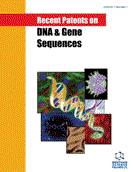Abstract
MicroRNAs (miRNAs, miRs) are a class of non-coding single-stranded RNAs, which can negatively regulate gene expression at posttranscriptional levels by miRNA-mRNA interaction. It has been demonstrated that miRNAs play important roles in a variety of biological process, including cell proliferation, differentiation, apoptosis, and tumorigenesis. Recent studies have shown crucial roles of specific miRNAs in controlling oligodendrocyte (OL) differentiation and myelination. Dysregulation of miRNAs is a vital event in the pathogenesis of demyelinating diseases. Furthermore, new patents of miRNAs also provide new strategies for gene therapy and miR-drug development for demyelinating diseases, especially multiple sclerosis. In this review, we briefly introduce the roles of miRNAs in OL differentiation and in the pathogenesis of demyelinating diseases, with emphasis on the implication of miRNAs patents in disease diagnostic and therapeutic perspective and its related technologies and challenges in clinical application.
Keywords: microRNAs, patents, oligodendrocyte, demyelinating diseases, multiple sclerosis, miR-drug, MiRNAs, DISEASE BIOMARKERS, DEMYELINATION-RELATED DISEASES, NOVEL MiRNAs, antagomirs, Oligodendrocyte progenitor cells, Central nervous system, EAE
Recent Patents on DNA & Gene Sequences
Title: MicroRNA Patents in Demyelinating Diseases: A New Diagnostic and Therapeutic Perspective
Volume: 6 Issue: 1
Author(s): Jia-Su Li and Zhong-Xiang Yao
Affiliation:
Keywords: microRNAs, patents, oligodendrocyte, demyelinating diseases, multiple sclerosis, miR-drug, MiRNAs, DISEASE BIOMARKERS, DEMYELINATION-RELATED DISEASES, NOVEL MiRNAs, antagomirs, Oligodendrocyte progenitor cells, Central nervous system, EAE
Abstract: MicroRNAs (miRNAs, miRs) are a class of non-coding single-stranded RNAs, which can negatively regulate gene expression at posttranscriptional levels by miRNA-mRNA interaction. It has been demonstrated that miRNAs play important roles in a variety of biological process, including cell proliferation, differentiation, apoptosis, and tumorigenesis. Recent studies have shown crucial roles of specific miRNAs in controlling oligodendrocyte (OL) differentiation and myelination. Dysregulation of miRNAs is a vital event in the pathogenesis of demyelinating diseases. Furthermore, new patents of miRNAs also provide new strategies for gene therapy and miR-drug development for demyelinating diseases, especially multiple sclerosis. In this review, we briefly introduce the roles of miRNAs in OL differentiation and in the pathogenesis of demyelinating diseases, with emphasis on the implication of miRNAs patents in disease diagnostic and therapeutic perspective and its related technologies and challenges in clinical application.
Export Options
About this article
Cite this article as:
Li Jia-Su and Yao Zhong-Xiang, MicroRNA Patents in Demyelinating Diseases: A New Diagnostic and Therapeutic Perspective, Recent Patents on DNA & Gene Sequences 2012; 6 (1) . https://dx.doi.org/10.2174/187221512799303127
| DOI https://dx.doi.org/10.2174/187221512799303127 |
Print ISSN 1872-2156 |
| Publisher Name Bentham Science Publisher |
Online ISSN 2212-3431 |
 62
62Related Articles
-
An update on Anti-inflammatory Compounds: A Review
Anti-Inflammatory & Anti-Allergy Agents in Medicinal Chemistry Computational Methods for the Prediction of Microbial Essential Genes
Current Bioinformatics DNA Microarray-Based Gene Expression Profiling in Cancer: Aiding Cancer Diagnosis, Assessing Prognosis and Predicting Response to Therapy
Current Pharmacogenomics Impaired Cerebral Autoregulation and Vasomotor Reactivity in Sporadic Alzheimer’s Disease
Current Alzheimer Research Exploring Structure-Activity Relationships of Tricyclic Farnesyltransferase Inhibitors Using ECLiPS® Libraries
Combinatorial Chemistry & High Throughput Screening Cognitive and Functional Influences of Vildagliptin, a DPP-4 Inhibitor, Added to Ongoing Metformin Therapy in Elderly with Type 2 Diabetes
Endocrine, Metabolic & Immune Disorders - Drug Targets Oxidative Stress in the Pathogenesis/Treatment of Diabetes and its Complications
Current Nutrition & Food Science Accuracy of Telephone-Based Cognitive Screening Tests: Systematic Review and Meta-Analysis
Current Alzheimer Research CB Receptor Ligands from Plants
Current Topics in Medicinal Chemistry Neuroinflammation, Microglia and Mast Cells in the Pathophysiology of Neurocognitive Disorders: A Review
CNS & Neurological Disorders - Drug Targets Pharmacological Profile and Pharmacogenomics of Anti-Cancer Drugs Used for Targeted Therapy
Current Cancer Drug Targets Liver Transporters in Hepatic Drug Disposition: An Update
Current Drug Metabolism Adiponectin as a Regulator of Vascular Redox State: Therapeutic Implications
Recent Patents on Cardiovascular Drug Discovery Receptor Binding Inhibitor Suppresses Carcinogenesis of Cervical Cancer by Depressing Levels of FSHR and ERβ in Mice
Anti-Cancer Agents in Medicinal Chemistry Participation of the Cannabinoid System in the Regulation of Emotional- Like Behaviour
Current Pharmaceutical Design Child Mental Health in the Philippines
Adolescent Psychiatry Advanced Membrane Systems for Tissue Engineering
Current Organic Chemistry The Anticonvulsant Effects of Ketogenic Diet on Epileptic Seizures and Potential Mechanisms
Current Neuropharmacology Synthetic and Reactions Routes to Tetrahydrothieno[3,2-b]Quinoline Derivatives (Part IV)
Mini-Reviews in Organic Chemistry Opioid Substitution Therapy: Achieving Harm Reduction While Searching for a Prophylactic Solution
Current Pharmaceutical Biotechnology












